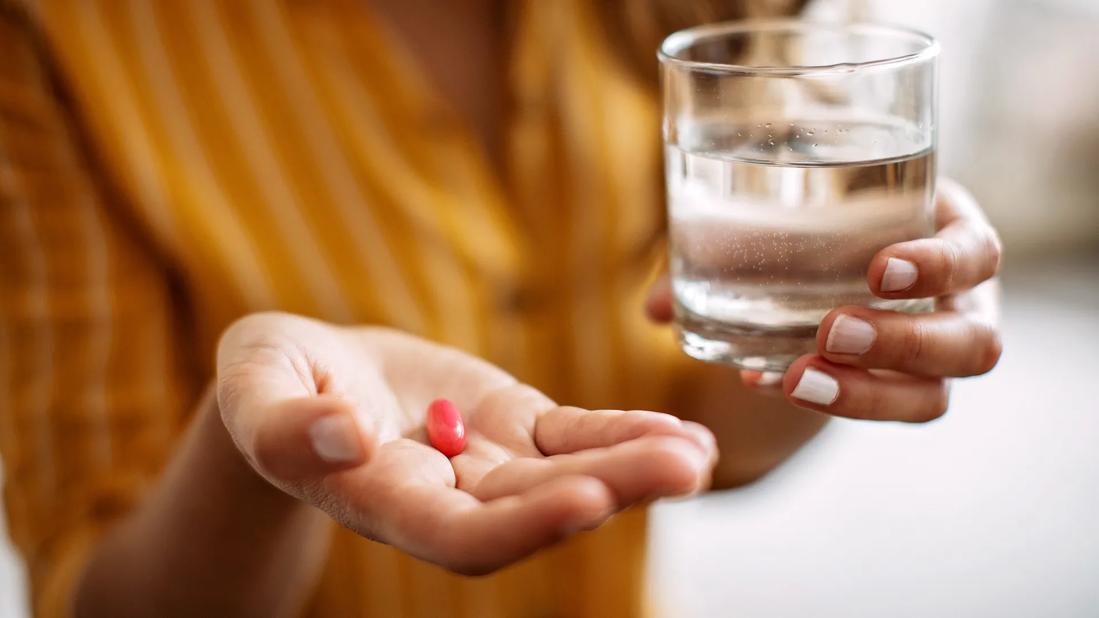The research isn’t clear, but it’s safe to try this essential mineral for relief

Image content: This image is available to view online.
View image online (https://assets.clevelandclinic.org/transform/c40bf865-b410-4ddd-91a2-bc9b21cc8629/taking-magnesium-for-cramps-1239445826)
Hand holding red capsule, with other hand holding glass of water
Not everyone experiences cramps with their periods (lucky!). But for many women, cramp pain can range from mild to debilitating. If you’re badly impacted, you’re probably willing to try almost anything to get some relief.
Advertisement
Cleveland Clinic is a non-profit academic medical center. Advertising on our site helps support our mission. We do not endorse non-Cleveland Clinic products or services. Policy
So, you might be wondering: Can a magnesium supplement keep menstrual cramp pain at bay?
Ob/Gyn Salena Zanotti, MD, weighs in on whether magnesium is worth a try.
Yes, magnesium can help with period cramps, although the effect may be small.
“There aren’t any large studies looking at magnesium for cramps,” notes Dr. Zanotti. “Some small studies say it doesn’t do anything, and others say it might help a little. It doesn’t hurt to try magnesium to see if it works for you.”
Magnesium can help with cramps by reducing:
“The uterus is a muscle. During your period, the muscle contracts (tightens) to get the menstrual blood out,” explains Dr. Zanotti. “You feel the muscle contracting, and that’s what the cramp is — just like a cramp in any other area of the body.” Menstrual cramps are actually mini contractions like those that occur during childbirth.
Magnesium is an essential mineral your body uses in many different biological processes. You can find different types of magnesium supplements at the pharmacy.
“Magnesium glycinate is the best type for cramps. It gets absorbed better and can be a little more effective,” advises Dr. Zanotti. “It’s also better tolerated in terms of potential gastrointestinal (GI) upset.” Other common magnesium supplements include magnesium citrate and magnesium oxide, but they’re not the top choices for period pain.
Advertisement
“We don’t have large studies to support specific amounts of magnesium to take for cramps,” reiterates Dr. Zanotti. But small studies use 150 to 300 milligrams of magnesium per day, so an amount in this range is a good daily dosage to aim for.
The recommended daily allowance (RDA) of magnesium for women is 320 milligrams. Many foods contain magnesium, but people in the U.S. typically don’t get enough through diet alone.
According to one study, you may get more relief with magnesium plus vitamin B6 compared with magnesium alone or a placebo. Participants in this study took 250 milligrams of magnesium with 40 milligrams of vitamin B6.
Magnesium may help you sleep better and ease tension in general, which can be helpful during your period. However, magnesium doesn’t affect actual blood flow, so it’s not a remedy for heavy periods.
Dr. Zanotti says that magnesium is a low-risk vitamin. The most common side effects are typically mild and GI-related — things like diarrhea, nausea and vomiting.
If you have any side effects, you can try a lower dose. “If you stay on the lower end of dosing, closer to 150 milligrams, you’ll probably be fine,” says Dr. Zanotti.
You can also combine magnesium with other ways to get rid of period cramps, like over-the-counter medications and heat.
What if you’ve tried magnesium and other home remedies, but your cramps are still really bad?
“If you’re missing school or work or can’t do the things you want to do because of cramps, it’s time to see your provider,” urges Dr. Zanotti. “You may need a prescription-strength pain reliever.”
Some types of birth control can also reduce menstrual cramps, including:
Your provider may also want to screen for certain conditions that contribute to severe cramps:
With the help of your provider, you can rule out conditions that may need further treatment and get the relief you need from period cramps.
Advertisement

Sign up for our Health Essentials emails for expert guidance on nutrition, fitness, sleep, skin care and more.
Learn more about our editorial process.
Advertisement
Stress, PCOS, perimenopause or hyperthyroidism may cause a low flow
Heat therapy, light exercise and anti-inflammatory medications can bring relief
From medications and stress to PCOS and STIs, there’s a wide range of reasons Aunt Flo may overstay her welcome
Although it can be alarming, it’s normal to experience blood clots during menstruation
Reasons for spotting can include menopause, uterine fibroids, PCOS and birth control
Options for relief at any age
Look for signs of an underlying bleeding disorder
Getting the right flange fit can make pumping breast milk more comfortable and effective
Prioritize your health by managing stress, strengthening your social connections and getting quality sleep
Bolsters, blankets, pillows and blocks can offer extra support, stability and comfort
Allergies, postnasal drip, asthma or reflux could be to blame for a cough that won’t quit